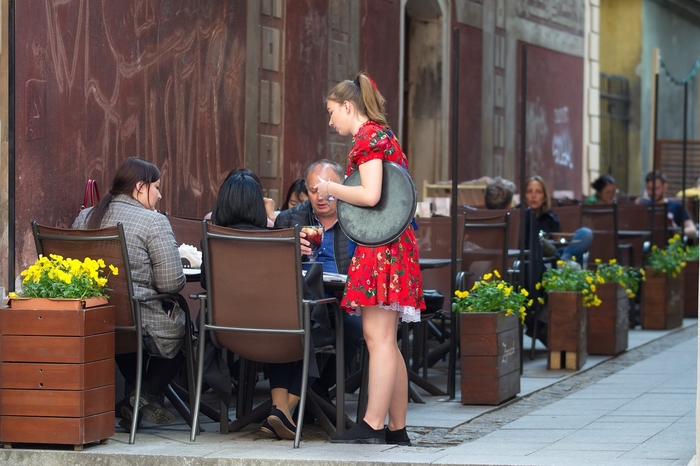
How Do You Live in a Country When You Don’t Speak the Language?
No matter how much you want to move to Turkey, the prospect of living somewhere when you don’t speak the language can be daunting. From shopping for groceries to filling up your car with fuel, as soon as we interact with other people we need to communicate. Without the words you need, it’s easy to feel at a disadvantage.
Learning languages is a skill that, like everything in life, some people are better at than others. You may find you pick up Turkish relatively easily, while others might be immersed in it for years and still struggle to remember more than a few basic phrases.
Whichever camp you fall into, don’t worry. There are many foreigners in Turkey who can’t speak Turkish and it doesn’t affect their enjoyment of life. If you’re planning to move or spend extended periods of time here, though, there are a few things you can do to make it as easy as possible.

Take a Turkish class
It’s a good idea to try to learn Turkish, especially if you plan to live here full time. In some areas, the belediye – the local council – runs formal courses for foreigners, or you might prefer a private tutor who will teach you one-to-one. Casual group gatherings are sometimes held in bars over winter to improve conversational skills, so ask around where you live; if you can’t find one, you could always suggest it.
There are also some great apps to get you started and increase your vocabulary. Duolingo, Memrise and Busuu are among the most popular, and all support Turkish. You can learn at a pace that suits you and focus on specific topics. The beauty of an app is also that you can learn whenever and wherever you want – even before you make the move.
Learn to love lists
Make lists of words and their Turkish equivalents to help you in everyday situations. For example, you might have a list of grocery and household essentials for supermarket trips, or fruits, vegetables and weights for the market. You could make lists of words you might need if you’re going to the bank or the chemist.
Even if you know them already, it’s easy to panic and forget what you wanted to say when somebody talks to you, especially in the beginning. Or, although it’s easy enough to find the flour aisle in the supermarket, can you tell the difference between the different types and be sure you’re buying the right one? Lists help you make it easy on yourself. To get really organised, buy a notebook and split everything into colour-coded sections (our personal preference).

Keep personal information handy
You’ll find you’re often asked for your name, telephone number and where you live. This doesn’t just apply to official business – it happens in shops, too. Having your details on a piece of paper or as a note on your phone can stop you getting flustered as you try to remember Turkish pronunciation or numbers. If you’re arranging deliveries, for example when buying furniture for your new villa in Kalkan or apartment in Side, you might also like to keep a note of directions or nearby landmarks to your new home.
Ask for help
If you’re living in a popular resort area, such as Antalya or Alanya, you’ll find a lot of people speak English to some degree. This makes everyday life relatively easy. You’re more likely to encounter problems when you deal with bureaucracy, as the majority of officials speak Turkish only.
There are people who offer professional assistance and translation services, which can be helpful for hospital visits, applying for your resident’s permit and similar tasks. If you’re buying property in Turkey through us, we help with the formalities and give our customers as much assistance as they need.
However, it’s also a good idea to find someone to call on for everyday support. The loudspeaker system is a quick, efficient way of communicating with the public, but it can be difficult to work out what is being said. How do you know if it was a severe weather warning, a funeral announcement, or a reminder the water will be off tomorrow for maintenance work? Having someone you can ask is invaluable.

Arm yourself with some basics
It’s great to know how to say please, thank you and good morning. But we’d also suggest making it a priority to learn a few key phrases for the times you get stuck or really need help. We’ve listed a few to get you started, along with pronunciation tips.
- I need help. – Yardım ihtiyacım var. (Yar-dum itty-arjum var.)
- Do you speak English? – İngilizce biliyor musunuz? (Ingiliz-jay billy-or muss-un-uz?)
- I don’t speak Turkish. – Türkçe konuşmuyorum. (Turk-chay kon-ush-muh-yorum.)
- I don’t understand. – Anlamıyorum. (An-la-muh-yor-um.)
- Speak more slowly, please. – Lütfen daha yavaş konuş. (Lut-fen da-ha ya-vash kon-ush.)
- Where is the police station? – Jandarma nerede? (Jan-dar-ma ner-eh-day?)
Make the most of technology
If you’ve got a smartphone or tablet, there are some great translation apps available. Some have the option for you to speak directly into the microphone and have what you say instantly translated audibly, which means you don’t need to worry about spelling or an unfamiliar alphabet.
Use your devices to take photographs to illustrate what you’re saying, too. For example, if you’re taking your car to be fixed, as well as looking up the Turkish word for ‘clutch’ (debriyaj, pronounced deb-ree-aj), you can show the mechanic a picture if he doesn’t understand you.
Above all, stay calm
It’s easy to panic when you’re in an unfamiliar situation. Take a deep breath and remember most people want to help, especially if they can see you’re trying. They’re not waiting for you to get it wrong and will do their best to understand.
Avoid the peculiarly British habit of simply repeating yourself in English more loudly and slowly. Remember the majority of communication is non-verbal, so gestures, body language and facial expressions will all help. A smile and a friendly attitude go a long way.
